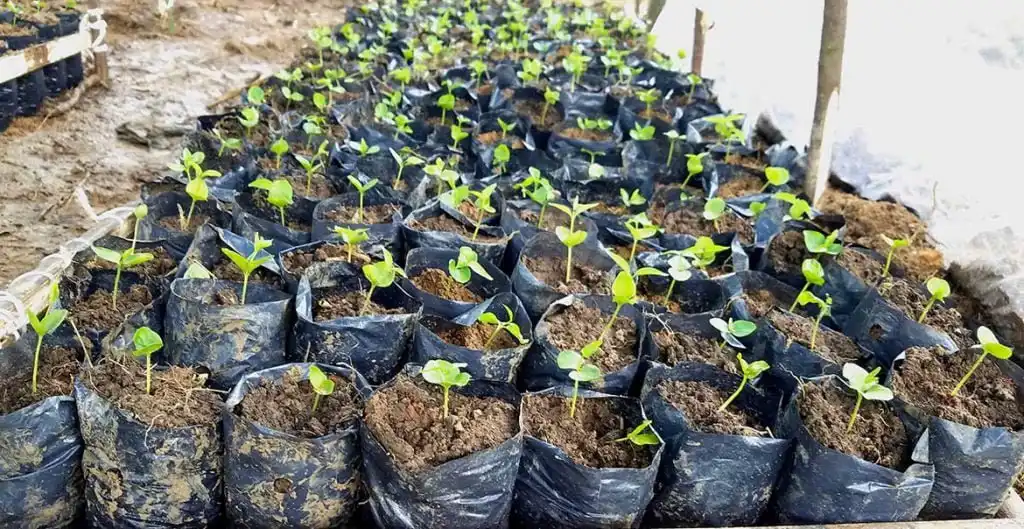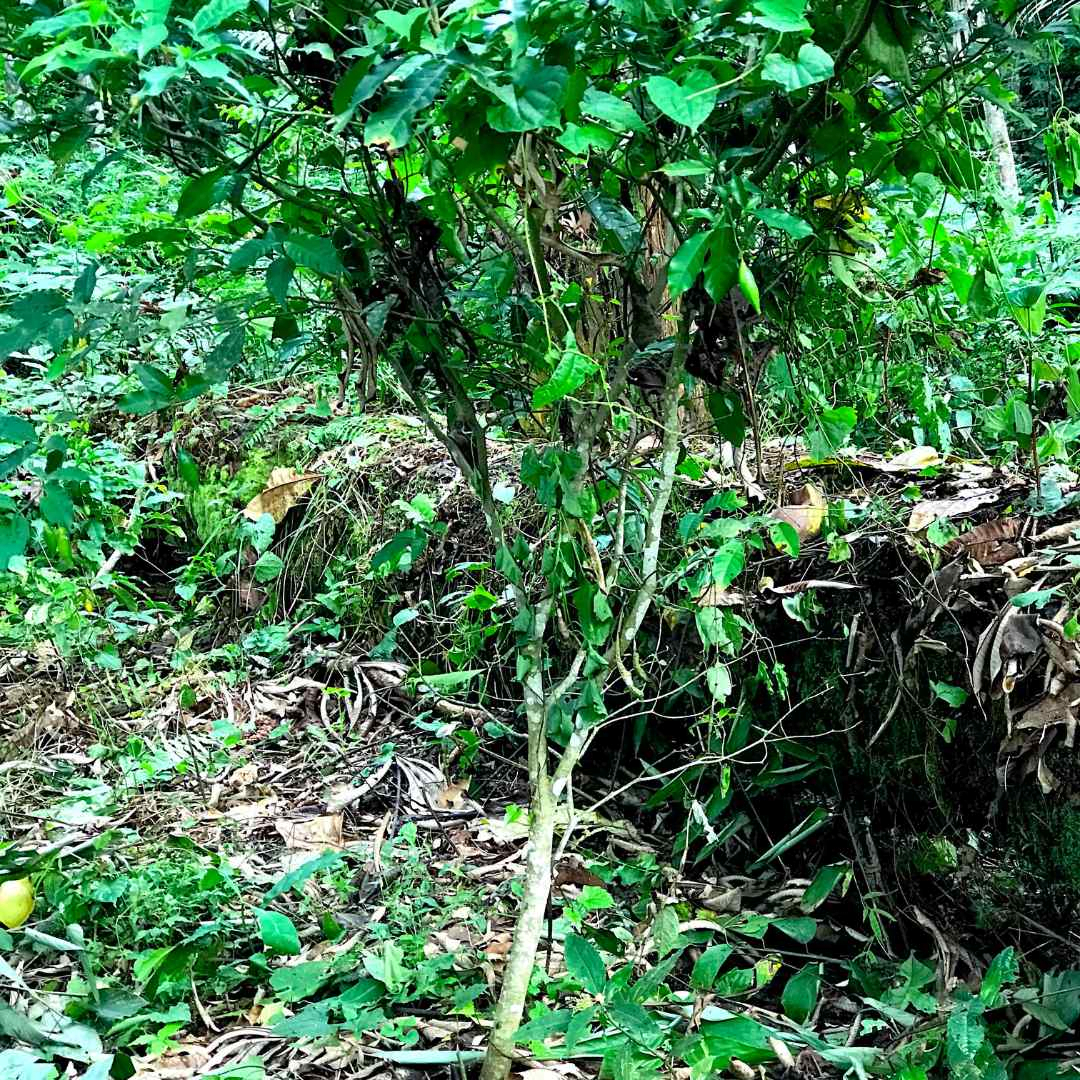Iboga is a powerful, natural substance that has been used for centuries by indigenous communities in Africa for spiritual and medicinal purposes. The use of the iboga plant for medical and spiritual purposes can be termed as Iboga Healing.
This plant-based substance has recently gained popularity in the Western world for its ability to help individuals overcome addiction, improve mental health, and promote spiritual growth.
In this comprehensive guide, we will explore the benefits and uses of Iboga and why it is becoming a popular tool for personal growth and healing.
Table of Contents
What is Iboga?

Iboga is a shrub native to the rainforests of West Central Africa. Its root bark contains a powerful alkaloid called ibogaine, which indigenous communities in Africa have used for centuries for spiritual and medicinal purposes.
The root bark is typically harvested, dried, and processed into a powder or shavings that can be consumed in various forms.
Historical Context of Iboga Healing
Traditional Uses by Indigenous Communities
The Iboga shrub, scientifically known as Tabernanthe iboga, is native to the rainforests of West Central Africa. Indigenous communities, particularly the Bwiti tribe in Gabon, have used the root bark of this plant in spiritual initiation ceremonies and as a medicinal treatment for various ailments. The psychoactive alkaloid ibogaine in the root bark is central to these practices.
Discovery and Introduction to the West
Ibogaine was first isolated in 1901 by French and Belgian researchers. Its potential therapeutic uses, particularly for opioid detoxification and treating drug addiction, were explored in the 1960s by Howard Lotsof. Despite promising results, the substance faced legal and regulatory hurdles, limiting its widespread use.

Scientific Research and Clinical Studies
Clinical Trials and Studies
Significant research has been conducted to evaluate the effectiveness of ibogaine in treating addiction. Studies published in journals such as the Journal of Psychoactive Drugs have highlighted ibogaine’s potential to disrupt addictive patterns and reduce withdrawal symptoms. For example, ibogaine has shown a significant reduction in opioid dependence and has been effective in alleviating symptoms of depression and anxiety.
What are the effects of Iboga?
In contrast with other plant medicines, the effects are longer. The effect generally lasts 15 or 24 hours. It consists of two stages. At the start, you may wish to rest and be warm. It generally takes approximately 1.5 hours to experience the sensation, and each tolerance varies.
It doesn’t matter what weight one can determine tolerance. 100-pound persons have better tolerances than 300 pounds. It is caused by an ataxia, which causes the body not to move normally. The user experiences various degrees of glitchy movements.
Mechanism of Action
Ibogaine interacts with various neurotransmitter systems in the brain, particularly those involving serotonin and dopamine. It resets the brain’s reward pathways, which helps in reducing cravings and withdrawal symptoms.
The introspective and often intense psychedelic experiences induced by ibogaine also allow individuals to address underlying psychological issues contributing to their addiction.
2. Improving Mental Health
In addition to its powerful healing properties for addiction, Iboga has also been shown to be an effective tool for treating various mental health issues, such as depression, anxiety, and PTSD.
Iboga can help individuals overcome these challenges and live more fulfilling lives by promoting a sense of peace, clarity, and well-being.
3. Promoting Spiritual Growth
Iboga is also a powerful tool for spiritual growth and self-discovery.
Using this natural substance can help individuals gain new insights into their thoughts, behaviors, and motivations.
This can lead to profound personal growth and a deeper understanding of the world around us.
4. Boosting Energy and Focus
Iboga has also been shown to boost energy levels and improve focus and concentration in low doses.
This makes it a popular tool for individuals looking to improve their mental clarity and productivity.
The Uses of Iboga
1. Addiction Treatment
One of the most common uses of Iboga is as a tool for addiction treatment.
Individuals who struggle with addiction to drugs, alcohol, or other harmful behaviors can use Iboga to help them break free from the cycle of addiction and reclaim their lives.
2. Mental Health Treatment
Iboga is also commonly used as a tool for treating various mental health issues, such as depression, anxiety, and PTSD.
Iboga can help individuals overcome these challenges and live more fulfilling lives by promoting a sense of peace, clarity, and well-being.
3. Spiritual Growth and Self-Discovery
Iboga is also used as a tool for spiritual growth and self-discovery. By gaining new insights into their thoughts, behaviors, and motivations, individuals can achieve profound personal growth and a deeper understanding of the world around them.
Safety and Precautions
While Iboga is a safe and effective tool for personal growth and healing, it is important to use it under the guidance of a professional.
Iboga can have powerful and unpredictable effects, and using it in a controlled and safe environment is important.
Additionally, individuals with certain medical conditions, such as heart problems or liver disease, should not use Iboga. It is also important to be aware of potential side effects, such as nausea, vomiting, and hallucinations.
Iboga experience

It is important to remember that every person’s experience with Iboga is unique and may differ from others.
Some may have profound and life-changing experiences, while others may not have the same level of intensity. However, regardless of the outcome, it is still a valuable tool for personal growth and self-discovery.
When seeking to use Iboga, it is recommended that you work with a reputable and experienced practitioner who can guide you through the process and ensure your safety.
Preparing yourself mentally and emotionally is also important, as the experience can be intense and emotional.
At Get Ibogaine, we understand the importance of having a dedicated and experienced professional to guide you through the iboga treatment process.
That’s why we have a highly qualified Naturopathic practitioner on our team who is knowledgeable and experienced in using iboga and its protocols.
We are thrilled to offer a free consultation with our practitioner. This will allow you to discuss your needs and goals and receive expert advice on how iboga can help you.
Whether you’re seeking addiction recovery, personal growth, or mental and physical healing, our practitioner is here to help.
Don’t miss out on this opportunity to receive expert guidance and support on your journey with iboga.
Schedule your free consultation with our Naturopathic practitioner today and take the first step towards a brighter, healthier future.
side effects of iboga
Iboga is a powerful natural substance that has been used for centuries by indigenous communities in Africa for spiritual and medicinal purposes.
While it has numerous benefits, including addiction recovery, mental health, personal growth, and physical health, it is important to be aware of the potential side effects of iboga.
1. Nausea and Vomiting
One of the most common side effects of iboga is nausea and vomiting. This is often due to the intense nature of the experience and can last for several hours.
In some cases, individuals may experience prolonged nausea and vomiting, which can be uncomfortable and potentially dangerous.
2. Hallucinations
Iboga can cause intense hallucinations, which can be both positive and negative. The hallucinations can last for several hours and may include vivid visual and auditory experiences.
While some individuals may find the hallucinations to be a positive and enlightening part of the experience, others may find them to be distressing or overwhelming.
3. Cardiac and Respiratory Issues
Iboga can also cause cardiac and respiratory issues, particularly in individuals with pre-existing conditions.
It is important to be monitored by a trained professional during the experience to minimize the risk of these side effects.
4. Emotional Trauma
In some cases, iboga can trigger emotional trauma and cause individuals to revisit past traumas and negative experiences.
This can be distressing and overwhelming, and it is important to be prepared for this possibility and to have support available if needed.
5. Dependence
In rare cases, individuals may develop a dependence on iboga, which can be difficult to overcome.
It is important to use iboga in moderation and under the guidance of a trained professional to minimize the risk of dependence.
Legal and Ethical Considerations
Legal Status Worldwide
The legal status of ibogaine varies globally. In countries like the United States, it is classified as a Schedule I substance, indicating no recognized medical use and a high potential for abuse. However, in other countries like Mexico and Brazil, ibogaine is legally used in treatment centers for addiction recovery.
Ethical Concerns
Ethical concerns regarding ibogaine treatment include the need for medical supervision due to potentially serious side effects such as heart problems and the variability in treatment quality across different clinics.
Ensuring the sustainability of iboga sources and respecting the cultural heritage of indigenous practices are also important considerations.
Ibogaine treatment outcomes for opioid dependence
Exploring the Efficacy of Ibogaine for Opioid Dependence: A Twelve-Month Study
Ibogaine, a psychoactive alkaloid derived from the iboga shrub (Tabernanthe iboga), has gained attention for its potential in treating opioid dependence and addiction. In a groundbreaking twelve-month follow-up observational study conducted in New Zealand, researchers explored the long-term effects of legal ibogaine treatment on opioid-dependent individuals.
Study Overview
Objective: To examine the long-term efficacy of ibogaine treatment for opioid dependence over 12 months.
Method: The study assessed 14 participants (50% female) using the Addiction Severity Index-Lite (ASI-Lite) to measure addiction severity, the Beck Depression Inventory-II (BDI-II) for depression, and the Subjective Opioid Withdrawal Scale (SOWS) for opioid withdrawal symptoms. Participants received a single ibogaine treatment from two different treatment providers.
The study demonstrated that a single ibogaine treatment could significantly reduce opioid withdrawal symptoms and sustain reduced opioid use or cessation over a year. The legal status of ibogaine in New Zealand facilitates a collaborative approach between treatment providers and healthcare professionals, potentially enhancing treatment outcomes.
The Promise and Risks of Ibogaine
Ibogaine offers hope for those struggling with opioid dependence by resetting the brain’s reward system and reducing cravings. However, the treatment is not without risks. Serious side effects, including potential fatalities, necessitate careful medical oversight.
Final Thoughts
Ibogaine treatment presents a promising avenue for opioid detoxification and addiction recovery. While the findings are encouraging, further research and strict safety protocols are essential to maximize benefits and minimize risks. As ibogaine continues to gain recognition, its role in addiction treatment could become more prominent, offering new hope for individuals battling opioid dependence.
For more information on ibogaine treatment and support, consult with healthcare professionals and explore reputable treatment centers.
Conclusion
In conclusion, Iboga is a powerful and transformative tool for personal growth, healing, and self-discovery.
Whether you are struggling with addiction, mental health issues, or simply seeking a deeper understanding of yourself, Iboga may be the solution you have been looking for.
However, it is important to use Iboga under a professional’s guidance and be aware of potential side effects and precautions. With its powerful benefits and uses, Iboga is becoming an increasingly popular tool for personal growth and healing in the Western world.


